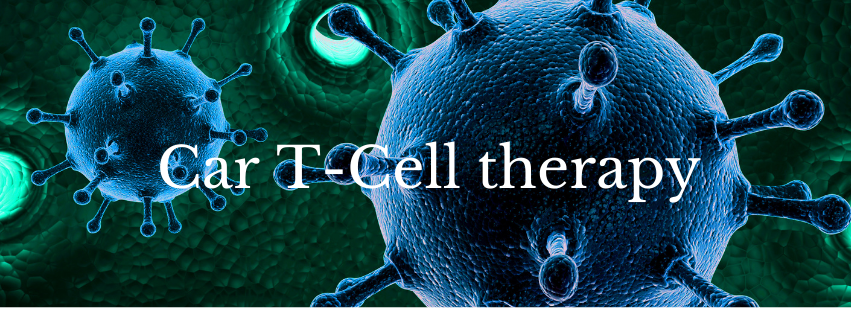CAR T-Cell therapy in solid tumors – A research study
March 2022: Blood vessels are supposed to behave like trees, pouring oxygen into tissues in order for them to flourish and immune cells to clean infections out. The forest, on the other hand, can go awry in tumours. Vessels expand rapidly and bulge and twist at sharp angles, making it difficult to distinguish between veins and arteries. It starts to resemble a gnarled root floor rather than a forest. One doctor described it as “a chaotic labyrinth.”

Chaos is a virtue for cancer. That gnarled root floor protects solid tumours from immune cells and has thwarted drug scientists’ greatest efforts in recent years to design medicines that would stimulate the immune system and guide it toward the tumours.
Researchers at the University of Pennsylvania, on the other hand, believe they may have discovered a remedy, a means to reshape the blood arteries. Experts believe that if it works, it could pave the way for CAR-T treatments that target solid tumours, as well as improve the efficacy of more traditional techniques like radiation and chemotherapy.
“It’s a pretty innovative and possibly essential strategy,” said Patrick Wen, a Dana-Farber neuro-oncologist who was not involved in the study. “They did an excellent job. This is a novel approach to enhancing immunotherapy.”
Avastin, an anti-VEGF antibody that became a blockbuster, has consistently failed to increase survival in a variety of cancers.
Scientists would have to delve deeper into the subject. Fan demonstrated that a process known as “endothelial cell transformation” is part of the problem in two publications published in 2018. The cells that line the blood arteries around the tumour develop stem cell-like qualities, allowing them to proliferate and expand at the same rate as stem cells.
Fan told Endpoints, “There’s a genetic reprogramming.” “They’ll get a lot more aggressive.”
How did that reprogramming take place, though? Fan reasoned that if he could pin down the path, he could then create a technique to block it. He began by knocking out kinases, which are cellular motors that can promote epigenetic alteration, or “reprogramming,” in endothelial cells isolated from patients with glioblastoma, a kind of aggressive brain cancer. Out of 518, 35 avoided metamorphosis, with PAK4 performing exceptionally well.
The researchers next put tumours into mice, some of which had PAK4 and others of which had the kinase genetically removed: 80% of the PAK4-deficient mice lived for 60 days, while all of the wild-type mice died after 40 days. T cells invaded tumours more easily in PAK4-deficient mice, according to Fan’s study.
It was a fortunate discovery: a decade ago, when kinase inhibitors were the rage, drug companies had created many PAK inhibitors. Many had been abandoned, but Karyopharm had recently entered Phase I with a PAK4 inhibitor.
To determine if drug developers could take advantage of this discovery, Fan and his colleagues used T cells from mice and created a CAR-T treatment to attack cancers.
Three different regimens were given to the mice. Because the CAR-T therapy was unable to reach the tumour through the arteries, it was unable to shrink tumour size on its own. On its own, the Karyopharm medication had no effect. However, after five days, they were able to shrink the tumour size by 80%. The findings were published in Nature Cancer this week.
Fan remarked, “It’s a truly eye-opening result.” “I believe we are witnessing something quite extraordinary.”
Of course, this is only in mice, but Fan has already found substantial evidence for PAK4’s participation in cancer. While Fan was still working on his experiment, a publication from Antoni Ribas’ UCLA team was published in Nature Cancer in December, demonstrating that PAK4 inhibitors can help T cells infiltrate around diverse solid tumours. They demonstrated in mice that the same Karyopharm inhibitor might enhance the effects of PD-1 inhibitors, allowing activated T cells to reach tumours more effectively.
Susan Hau is a distinguished researcher in the field of cancer cell therapy, with a particular focus on T cell-based approaches and cancer vaccines. Her work spans several innovative treatment modalities, including CAR T-cell therapy, TIL (Tumor-Infiltrating Lymphocyte) therapy, and NK (Natural Killer) cell therapy.
Hau's expertise lies in cancer cell biology, where she has made significant contributions to understanding the complex interactions between immune cells and tumors.
Her research aims to enhance the efficacy of immunotherapies by manipulating the tumor microenvironment and exploring novel ways to activate and direct immune responses against cancer cells.
Throughout her career, Hau has collaborated with leading professors and researchers in the field of cancer treatment, both in the United States and China.
These international experiences have broadened her perspective and contributed to her innovative approach to cancer therapy development.
Hau's work is particularly focused on addressing the challenges of treating advanced and metastatic cancers. She has been involved in clinical trials evaluating the safety and efficacy of various immunotherapy approaches, including the promising Gamma Delta T cell therapy.
- Comments Closed
- March 24th, 2022



Patrick Wen, Penn medicine, UCLA lab, University of Pennsylvania, VEGF
CancerFax is the most trusted online platform dedicated to connecting individuals facing advanced-stage cancer with groundbreaking cell therapies.
Send your medical reports and get a free analysis.
🌟 Join us in the fight against cancer! 🌟
Привет,
CancerFax — это самая надежная онлайн-платформа, призванная предоставить людям, столкнувшимся с раком на поздних стадиях, доступ к революционным клеточным методам лечения.
Отправьте свои медицинские заключения и получите бесплатный анализ.
🌟 Присоединяйтесь к нам в борьбе с раком! 🌟